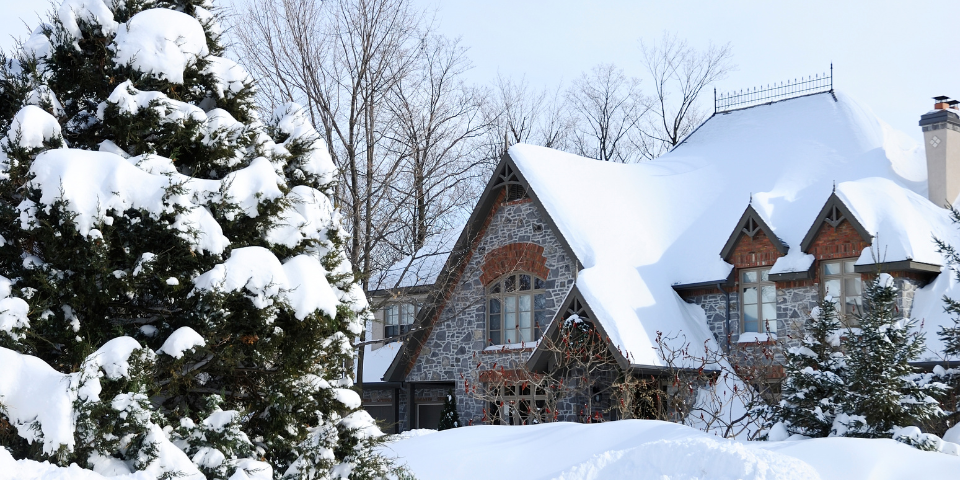Preparing Your House for Winter

Preparing your house for winter holds paramount importance in ensuring the safety, integrity, and longevity of your property. Winter weather can be harsh, bringing with it freezing temperatures, heavy snowfall, ice storms, and strong winds. Failing to adequately prepare your home for these conditions can lead to significant damage, posing not only financial implications but also potential risks to your family's safety.
PROPERLY PREPARING YOUR HOUSE FOR WINTER
Proper preparation acts as a robust shield against the elements. A well-insulated home not only keeps you warm and comfortable but also prevents the formation of ice dams and frozen pipes, two common issues during winter that can result in extensive damage to your home's structure and belongings. By sealing gaps, insulating pipes, and maintaining a consistent indoor temperature, you not only protect your investment but also create a secure environment for your loved ones.
THINGS TO DO TO PREPARE YOUR HOUSE
Here are the things you need to do before winter to mitigate the risk of insurance claims.
- Trim trees and bushes around your house this fall. Trim back over hanging branches and any shrubs or trees from touching the roof, home, or detaches structures. These branches could fall creating damage to your home, constant friction to your shingles will wear them out can decreased their integrity.
- Clean out your gutters. Nobody wants to do it! But keeping your gutters clear helps snow and ice drain properly when it melts. Not doing so could cause damage to your roof from the ice and snow.
- Check your smoke detectors, fire alarms and carbon monoxide detectors, and replace batteries. When was the last time you checked the batteries on your smoke detector? Making sure they work could save you and your family’s lives.
- Schedule a chimney sweep. Fall is the perfect time for an indoor fire, but it can be dangerous if your fireplace and chimney have not been cleared of built-up soot. A chimney fire and carbon monoxide leak are two silent – but potentially deadly – things that can occur.
- Inspect your pipes for exposure and vulnerabilities. If you have any pipes that are in non-heated areas, be sure to wrap with insulation to prevent freezing.
- Disconnect your hoses from your outdoor faucets. Leaving them out with water, could cause the pipe to freeze, and burst.
- Have your furnace serviced. Most HVAC companies are going to run specials this time of year to promote furnace servicing. Be sure that it is working order, and you have clean filters before running it for the entire season.
- Check for leaks and drafts! Inspect the windows, vents, fans, plumbing areas, air conditioners, electrical and gas lines of your home. Insulate or repair. Add weather stripping to stop air leaks. Air leaks allow cold air in, causing the furnace to run more.
- Keep a snow shovel handy. Even if there aren’t any blizzards or severe snowstorms over the course of the winter, you’ll need to keep your driveway and roof clear of snow. Clearing walkways and driveways of snow and ice can help prevent falls.
CONTACT
At Conner Insurance, we have set the standard for superior guidance and exceptional service for more than 70 years. Contact us at (317) 808-7711 to speak to one of our advisors. We serve clients across the entire country. Our headquarters is in Indiana and we have satellite offices to serve clients in all 50 states.
Disclaimer: These monthly blogs contain general information and may be subject to change. Policy language may vary by insurance carrier, so please refer to the specific policy in question. The Claims Advocate does not make any representations that coverage does or does not exist for any claim or loss and in no way guarantees coverage for claims.












